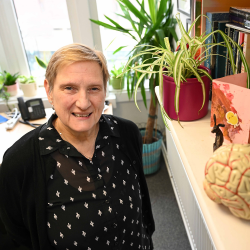-
Study
-
Quick Links
- Open Days & Events
- Real-World Learning
- Unlock Your Potential
- Tuition Fees, Funding & Scholarships
- Real World Learning
-
Undergraduate
- Application Guides
- UCAS Exhibitions
- Extended Degrees
- School & College Outreach
- Information for Parents
-
Postgraduate
- Application Guide
- Postgraduate Research Degrees
- Flexible Learning
- Change Direction
- Register your Interest
-
Student Life
- Students' Union
- The Hub - Student Blog
- Accommodation
- Northumbria Sport
- Support for Students
-
Learning Experience
- Real-World Learning
- Research-enriched learning
- Graduate Futures
- The Business Clinic
- Study Abroad
-
-
International
International
Northumbria’s global footprint touches every continent across the world, through our global partnerships across 17 institutions in 10 countries, to our 277,000 strong alumni community and 150 recruitment partners – we prepare our students for the challenges of tomorrow. Discover more about how to join Northumbria’s global family or our partnerships.
View our Global Footprint-
Quick Links
- Course Search
- Undergraduate Study
- Postgraduate Study
- Information for Parents
- London Campus
- Northumbria Pathway
- Cost of Living
- Sign up for Information
-
International Students
- Information for International Students
- Northumbria and your Country
- International Events
- Application Guide
- Entry Requirements and Education Country Agents
- Global Offices and Regional Teams
- English Requirements
- English Language Centre
- International student support
- Cost of Living
-
International Fees and Funding
- International Undergraduate Fees
- International Undergraduate Funding
- International Masters Fees
- International Masters Funding
- International Postgraduate Research Fees
- International Postgraduate Research Funding
- Useful Financial Information
-
International Partners
- Agent and Representatives Network
- Global Partnerships
- Global Community
-
International Mobility
- Study Abroad
-
-
Business
Business
The world is changing faster than ever before. The future is there to be won by organisations who find ways to turn today's possibilities into tomorrows competitive edge. In a connected world, collaboration can be the key to success.
More on our Business Services-
Business Quick Links
- Contact Us
- Business Events
- Research and Consultancy
- Education and Training
- Workforce Development Courses
- Join our mailing list
-
Education and Training
- Higher and Degree Apprenticeships
- Continuing Professional Development
- Apprenticeship Fees & Funding
- Apprenticeship FAQs
- How to Develop an Apprentice
- Apprenticeship Vacancies
- Enquire Now
-
Research and Consultancy
- Space
- Energy
- AI Futures
- CHASE: Centre for Health and Social Equity
- NESST
-
-
Research
Research
Northumbria is a research-rich, business-focused, professional university with a global reputation for academic quality. We conduct ground-breaking research that is responsive to the science & technology, health & well being, economic and social and arts & cultural needs for the communities
Discover more about our Research-
Quick Links
- Research Peaks of Excellence
- Academic Departments
- Research Staff
- Postgraduate Research Studentships
- Research Events
-
Research at Northumbria
- Interdisciplinary Research Themes
- Research Impact
- REF
- Partners and Collaborators
-
Support for Researchers
- Research and Innovation Services Staff
- Researcher Development and Training
- Ethics, Integrity, and Trusted Research
- University Library
- Vice Chancellors Fellows
-
Research Degrees
- Postgraduate Research Overview
- Doctoral Training Partnerships and Centres
- Academic Departments
-
Research Culture
- Research Culture
- Research Culture Action Plan
- Concordats and Commitments
-
-
About Us
-
About Northumbria
- Our Strategy
- Our Staff
- Our Schools
- Place and Partnerships
- Leadership & Governance
- University Services
- Northumbria History
- Contact us
- Online Shop
-
-
Alumni
Alumni
Northumbria University is renowned for the calibre of its business-ready graduates. Our alumni network has over 253,000 graduates based in 178 countries worldwide in a range of sectors, our alumni are making a real impact on the world.
Our Alumni - Work For Us
Our members conduct research to understand how information processing and subsequent actions are shaped by goals, knowledge, individual differences, health, and experience. Across our group, we have expertise in auditory, object and face perception, attentional control and working memory, learning and long-term memory, action planning, and motor learning. Our work spans the fundamental to applied spectrum and brings together sensitive behavioural, eye-tracking, motion-capture and electrophysiological techniques. The ultimate goal of our research is to understand how attention, memory, perception and action shape our interactions with the world around us and how those processes differ with age, neurodiversity and psychopathology.
Current Research Programmes:
Attention, memory, perception, and action through the life span
The ability to process and act on information changes with age. Our research in this programme has focused both on understanding children's information processing abilities and the impact ageing has on cognitive performance. This work stream also explores the factors that may mitigate age-related changes in thinking skills, including lifelong musical experience. Such fundamental understanding then informs opportunities for early intervention and treatment.
Examples of recent work:
Comparable rest-related promotion of spatial memory consolidation in younger and older adults.
Attention, memory, perception, and action for wellbeing
Optimal cognitive functioning is integral to healthy living, and efforts to improve wellbeing benefit from research on sources of and support for maladaptive cognition as well as how diversity in cognitive abilities can be understood and supported. Our research in this programme has focused on understanding the nature of perceptual hallucinations in clinical and non-clinical populations, the potential for short bouts of exercise and wakeful rest as a memory-promoting interventions, and the cognitive bases of neurodiversity.
Examples of recent work:
Attention, memory, perception, and action in different social and environmental contexts
Humans operate in diverse social and environmental contexts on a day-to-day basis. Our research in this programme has focused on how social dimensions -- ownership over objects and space, cooperative and competitive orientations, and perception of facial characteristics -- influence basic cognitive mechanisms and how that translates to behaviour.
Examples of recent work:
Affective compatibility with the self modulates the self-prioritisation effect
Methodological issues when using face prototypes: A case study on the Faceaurus dataset
Attention, memory, perception, and action with technology
As technology is increasingly integrated into our society and culture, it is important to understand the cognitive processes that support use of technology as well as the cognitive consequences of technology use. Our research in this programme has focused on the use of artificial intelligence in learning, human augmentation and robotics, esports performance, and effects of screen use.
Examples of recent work:
Maximising Coefficiency of Human-Robot Handovers Through Reinforcement Learning
Staff members
Group lead: Jason Rajsic
Student members
Latest News and Features

New research to boost preventative healthcare in Bolton
A collaborative project evaluating the success of the Making Every Contact Count healthcare…

Northumbria expands results day support for students
Northumbria University is expanding and enhancing the support it provides to students receiving…

Northumbria wins recognition for expanding access to higher education
Northumbria University has been named Higher Education Institution of the Year at a prestigious…

Government should provide more support for people who hoard, say experts
Experts from across the UK have called on the government to do more to address the growing…

Research highlights urgent need for national strategy to combat rising eating disorders
The increasing number of people with eating disorders and a lack of national guidance for support…

Transforming dementia support through technology network
Researchers have been awarded £1.6 million to develop a network which will support people living…

Read the latest issue of Northumbria University News: Spring 2025 edition
The Spring 2025 edition of Northumbria University’s newspaper is available to collect on campus…

The ‘red advantage’ is no longer true for Olympic combat sports
Wearing a red outfit in combat sports has been believed to provide an advantage for athletes,…
Upcoming events

Launch of the Northern Interprofessional Education Strategy
Northumbria University
-

Supporting Survivors of Sexual Violence and Abuse Conference 2026
CCE1 - City Campus East 1
-














